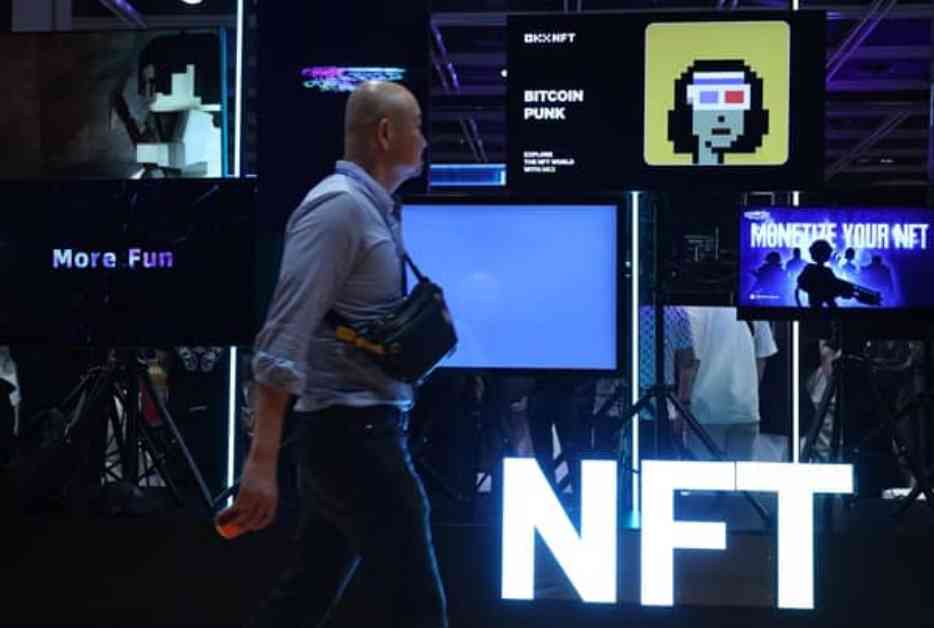The surge in popularity of non-fungible tokens (NFTs) has revolutionized the digital world, offering unique opportunities for ownership and value creation. However, with millions of users engaging in NFT transactions daily, the need for speed and security in these transactions has become paramount. Slow transaction speeds can erode user trust, while security vulnerabilities can lead to significant financial losses. To address these challenges, advanced blockchain technologies, robust security measures, and reliable cloud infrastructure play a crucial role in ensuring efficient and secure NFT transactions.
Definition and Transaction Process of NFTs:
Non-fungible tokens are unique digital assets that can represent a wide range of items such as artwork, music, in-game items, and videos. These tokens are based on blockchain technology, which ensures the verification of ownership and authenticity of digital assets. Unlike other digital currencies, NFTs are non-fungible and cannot be exchanged for another token. In the transaction process, an NFT is minted on the blockchain through a smart contract, requiring users to have a cryptocurrency wallet and sufficient funds to cover the transaction fees. Once the transaction is initiated and approved, ownership of the NFT is transferred to the buyer and recorded permanently on the blockchain.
The Role of Cloud Infrastructure in NFT Transactions:
Cloud infrastructure plays a vital role in supporting the scalability, speed, and security of NFT transactions. As the demand for NFT platforms continues to grow, cloud infrastructure provides the necessary support to ensure seamless transactions. Providers like OperaVPS offer cloud servers with scalable resources, enabling NFT platforms to handle spikes in user activity and transaction volume. By leveraging global data centers, cloud servers reduce latency, improve validation processing on the blockchain, and enhance user experience. Encryption protocols and multi-layer security measures employed by cloud server providers protect NFT transactions from cyber threats, safeguarding digital assets and ensuring secure transactions.
The Importance of Transaction Speed in NFT Markets:
In the fast-paced world of digital currencies, transaction speed is a critical factor in the success of NFT markets. Swift transactions enable buyers and sellers to participate effectively in NFT trading, especially during periods of high demand. Delayed transactions can result in missed opportunities and asset ownership, while slow processing times can lead to increased gas fees and user transaction costs. NFT platforms must be equipped to handle millions of users, and slow transaction speeds can negatively impact user interaction and trust. By utilizing high-speed blockchain networks, implementing layer 2 solutions, and other optimization methods, NFT platforms can ensure seamless and low-latency transactions to meet the growing demands of the digital asset market.
Ensuring Safety and Security in the NFT World:
With the rising popularity of digital assets, ensuring security in NFT transactions is paramount to mitigate threats such as hacking, phishing, and fraud. Safeguarding private keys, which provide access to NFT wallets, is crucial to protecting digital assets from malicious actors. Storing private keys securely, using hardware wallets, and employing strong security protocols like multi-signature wallets and two-factor authentication (2FA) enhance the security of NFT platforms. Additionally, leveraging AI-powered fraud detection systems can analyze transaction patterns to detect and prevent fraudulent activities, enhancing the overall security of NFT transactions.
Top 10 Tips to Speed Up and Secure NFT Transactions:
1. Choose the right blockchain for speed: Select blockchain networks like Solana, Flow, Polygon, EOS, or Binance Smart Chain (BSC) for faster transactions.
2. Implement layer 2 scaling solutions: Utilize technologies such as sidechains, rollups, and state channels to improve transaction speed and security.
3. Optimize smart contracts for security: Outsource audits to security companies like CertiK and OpenZeppelin to ensure smart contracts are secure.
4. Use multi-signature wallets: Employ multi-signature wallets to enhance security for managing NFTs and transactions.
5. Enable Two-Factor Authentication (2FA): Utilize 2FA for added security when accessing NFT platforms and digital wallets.
6. Deploy AI-powered fraud detection: Implement AI algorithms to analyze transaction patterns and prevent fraudulent activities.
7. Utilize Decentralized Exchanges (DEXs): Use DEXs for peer-to-peer trading of NFTs without intermediaries, enhancing transaction speed and security.
8. Explore Fractional Ownership: Enable fractional ownership of NFTs to increase liquidity in the market and expedite digital asset trades.
9. Leverage Zero-Knowledge Rollups (ZK-Rollups): Utilize ZK-Rollups to consolidate multiple transactions into a single, secure transaction.
10. Implement Sharding: Divide the blockchain network into smaller shards to improve transaction speed and security, enhancing scalability and data management.
Conclusion:
As the NFT landscape continues to evolve, ensuring the speed and security of transactions is crucial for NFT owners and investors. By leveraging advanced technologies, choosing the right blockchain, implementing layer 2 solutions, and adhering to robust security practices, users can enjoy fast, secure, and reliable NFT transactions. Cloud infrastructure plays a pivotal role in supporting the scalability and security of NFT transactions, providing the necessary resources to meet the demands of a growing market. By following best practices and adopting innovative solutions, the NFT ecosystem can continue to thrive with efficient and secure transaction processes.












